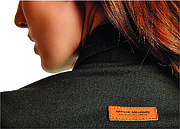TEXTILES
Keeping Up With Sustainability Demand
Building sustainability aspects into products and figuring out ways to serve the particular mindset of millennials are among the challenges facing fiber manufacturers.
Meanwhile, additional pressure is coming from performance-wear brands anxious to find the latest new developments while they also are demanding shorter lead times.
Two examples of fiber manufacturers that are aggressively building sustainability into their business models are Invista and Unifi.
Both recently unveiled new collections and have been positioning their technologies. “We’ve been listening to our customer, and we understand the need to reduce our footprint,” says Cynthia McNaull, global brand and marketing director for Invista’s Cordura.
McNaull said Invista’s $65-million investment in fiber production equipment at its Camden, S.C., facility will soon offer the capability of making new deniers and colors. It will also give the fiber maker the flexibility to offer lower minimum orders. The Camden plant will produce Cordura’s solution-dyed TrueLock fiber, which creates a deep, durable color.
TrueLock fits into Invista’s sustainability efforts, as the process of embedding color into the fiber results in reduced water and energy use as well as dye and chemical usage. Solution dyeing offers better color consistency lot to lot, compared to conventional piece dyeing, McNaull said.
Portland, Ore.–based Dovetail Workwear, a brand that markets itself as a workwear line made by women, exclusively for women, is one of the early adopters of the new “Supercharged Noir” denim collection, developed though a collaboration by Pakistan-based Artistic Milliners using Cordura and Tencel fibers.
It is a line of black performance denim, which integrates the durability of nylon 6,6 with color fastness, softness, sustainability and stretch, according to McNaull.
The Dovetail line has not gone commercial yet, but McNaull says Cordura will be working with the brand on consumer testing. She describes Artistic Milliners, a longtime manufacturing partner of Invista, as a “very innovative” mill.
Dovetail is a 2017 startup that began as Moxie & Moss but renamed itself in June. Its target customers range from construction workers to auto mechanics to artists and firefighters.
Supercharged Noir is the first denim application of Invista’s patent-pending T420HT staple-fiber technology for extreme resistance strength. Invista says it offers four times the abrasion resistance of 100 percent cotton denim at the same weight.
As generations go, McNaull says millennials have an acute awareness of buying things with purpose or meaning. That includes a preference for products made in a sustainable way.
Unifi is repositioning its fiber and yarn technologies to fall under the new umbrella of Profiber, officially introduced at the Outdoor Retailer trade show in July. The technologies can be used with both Unifi’s highly successful recycled fiber, Repreve, and with its virgin polyester and nylon.
“We continue to evolve with our products,” said Jay Hertwig, group vice president of global brand sales. “While Repreve has grown to what it is today, the No. 1 brand in textiles for recycled polyester, we need to create awareness of our other technologies.”
Repreve is now used by more than 350 brands globally. Unifi is on track to recycle 30 billion plastic bottles for the fiber by 2022. Repreve will be the base, but it will be offered with technologies including moisture management, stretch, odor control and flame resistance, Hertwig said.
Those technologies include “TruTemp 365,” developed for thermal regulation properties. Hertwig said it has been successful in men’s bottom weights, including dress pants, khakis and denim.
Another is “TruBounce,” a yarn construction used in socks and apparel that offers lightweight cushioning and resilience. “TruDry” is a breathable, moisture-wicking technology that helps keep fabrics cool and dry.
Hertwig said that in the coming years, Unifi will be exploring innovations that incorporate adaptive technologies into yarns, allowing fabrics to be functional.
“In some cases, this will be something that you can actually see, but in others, it will be something you can feel,” he said. “The technologies are out there but not commercial in a big way. It’s about what we can do to the fiber to make it react differently. We’re looking at a couple of things, but we’re not at the point that we know they are commercially viable.”
Hertwig said there are a lot of gimmicks in the marketplace, but Unifi is examining what can be done at the fiber level to make fabrics react differently. He said apparel brands are requesting fabrics with “cool touch” to keep the wearer cool while working out. Some brands have products on the market, but the “coolness” doesn’t last throughout a workout.
As for generational targeting, Hertwig said Unifi is pouring a lot of consumer research into the buying habits of millennials as well as Gen Zers. For now, it’s the millennials who are driving the interest in sustainability.
“They [millennials] are the ones asking the questions, such as, ‘How was this made?’, ‘Where was it made?’ and ‘What’s the impact?’”






















